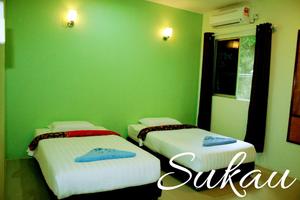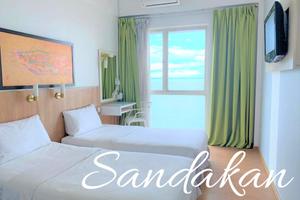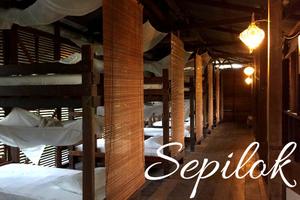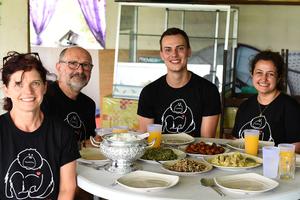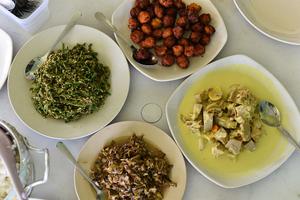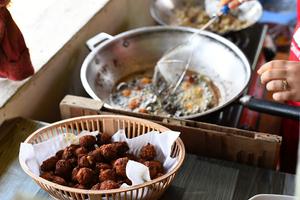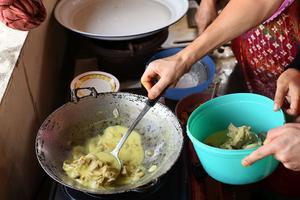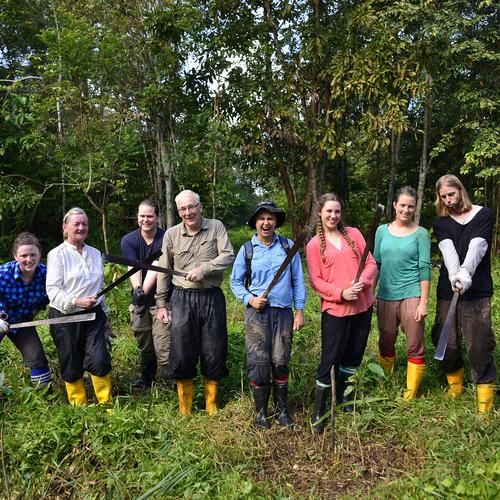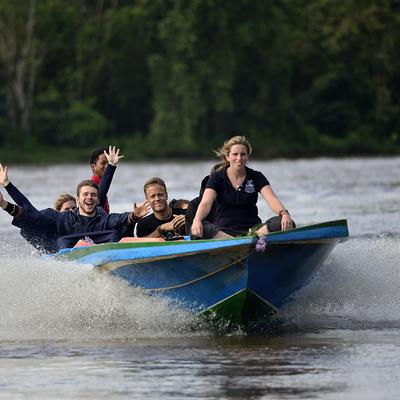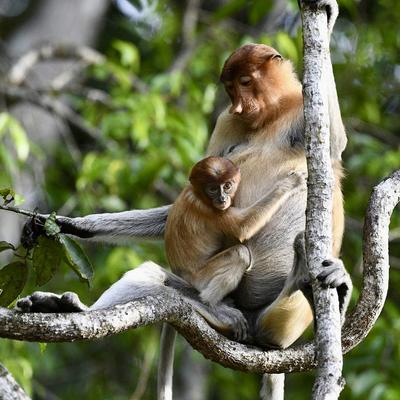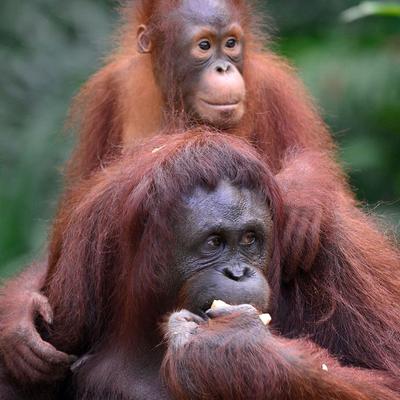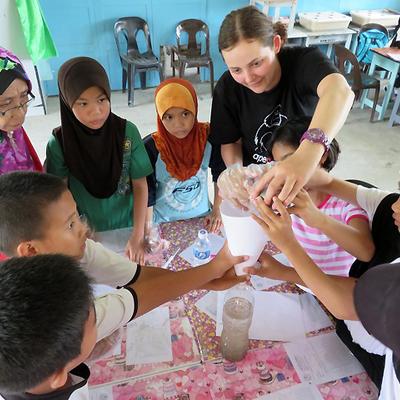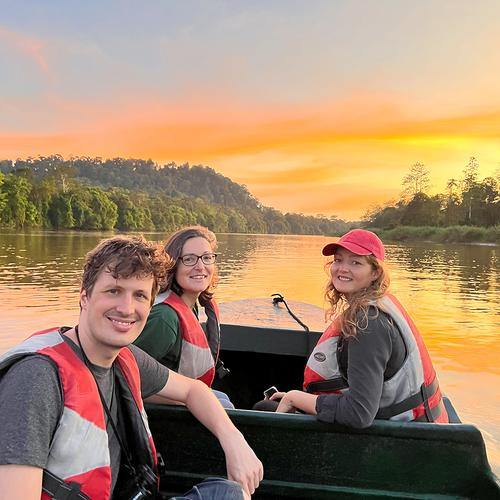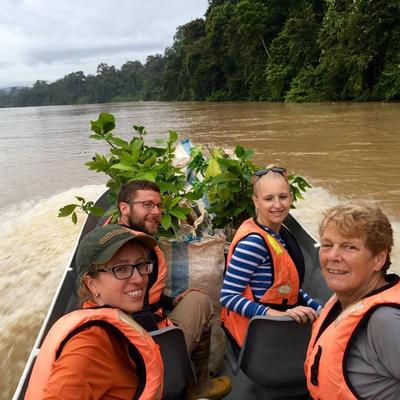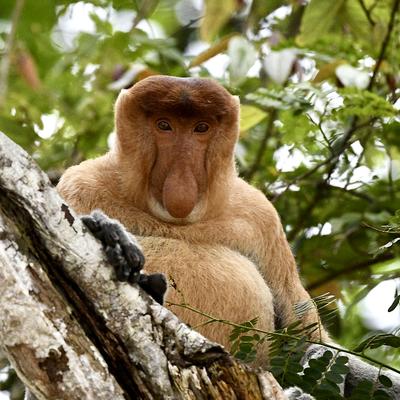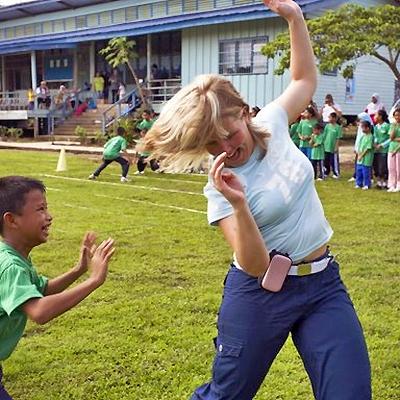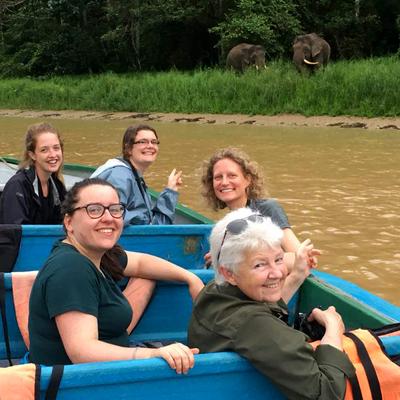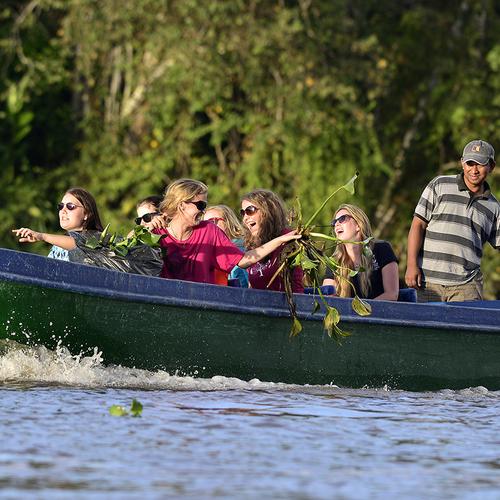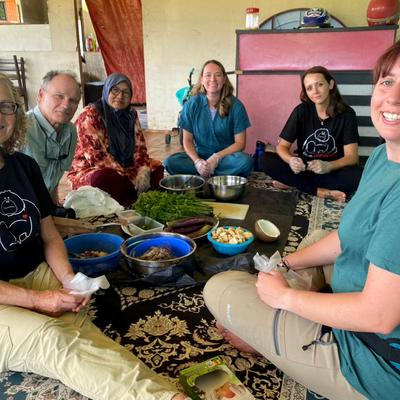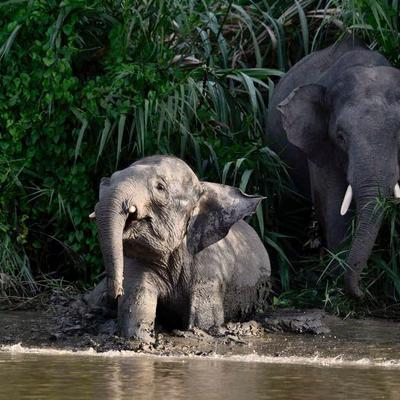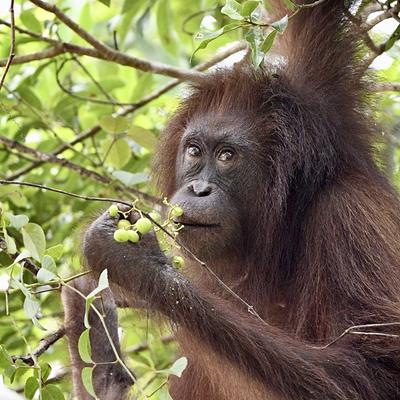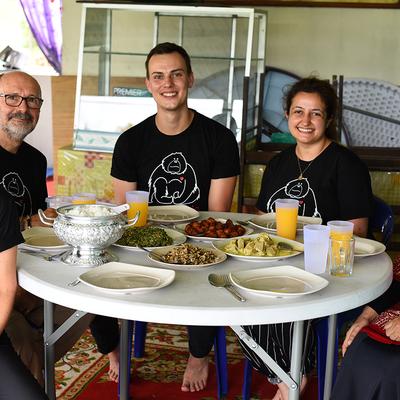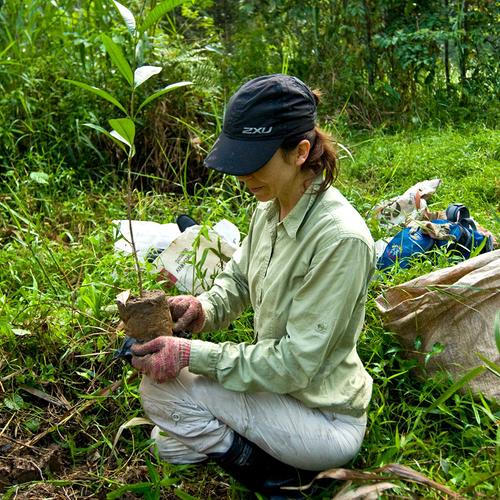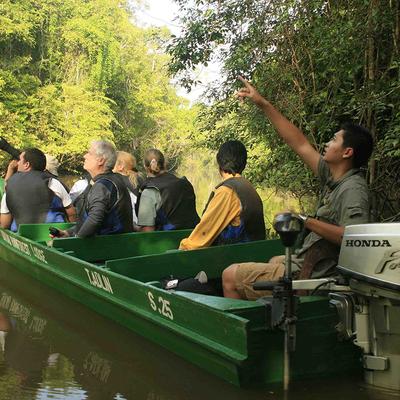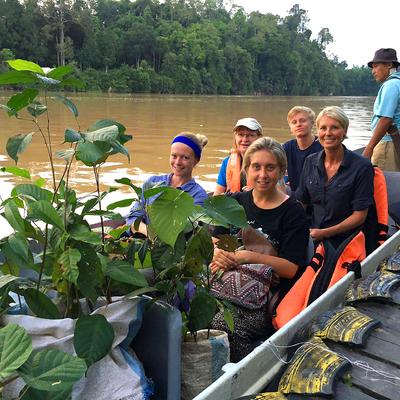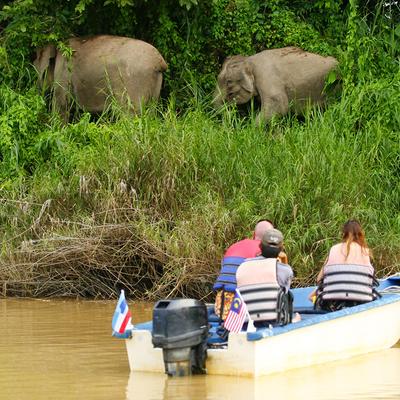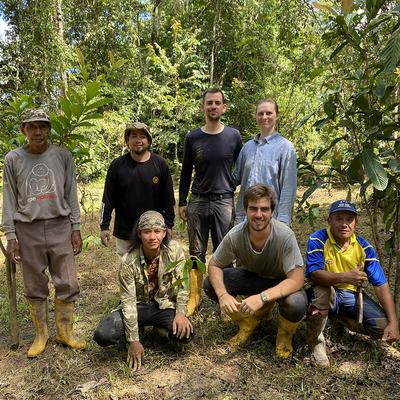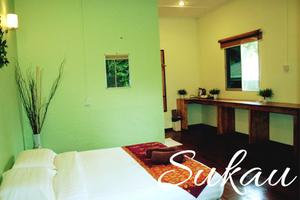

The Great Orangutan and Pygmy Elephant Project
Help to restore Borneo’s rainforest and provide a safe home for wild orangutans and pygmy elephants.
Based in the Lower Kinabatangan Floodplain in Sabah, The Great Orangutan and Pygmy Elephant Project completely encompasses the awe-inspiring diversity of Borneo’s rainforest landscape. The project is situated within the WWF’s protected ‘Corridor of Life’, a region of enormous importance in balancing land-development and the needs of its indigenous communities and wildlife, and as a volunteer, you will become immersed into the natural wonder of this unique habitat as you aid its reforestation.
During your time on the project, you will stay in the small village of Sukau as you live amongst the charming and hospitable ‘Orang Sungai’ (‘People of the River’). A rural, indigenous community of just 1000 or so, the Orang Sungai are always keen to share their way of life with guests, and in return you will help to educate the locals on the importance of conservation, assisting them in implementing more sustainable ways of living which are mutually beneficial to both the people and the animals in the area.
The main focus of the project is to work towards the reforestation of the ‘Corridor of Life’ as, without a safe passage to move through, the survival of species such as orangutans, pygmy elephants, gibbons and proboscis monkeys would be hindered. These reforestation efforts have proven to be successful, with visibility of both orangutans and pygmy elephants improving over time, but more must be done to ensure that Borneo’s wild animals can thrive in their endemic home.
Speak To A Travel Expert
Activities
Whilst the main focus of this project is habitat restoration, you will also take part in activities in and around Sukau village and along the Kinabatangan River as you assist with wildlife monitoring during river cruises and a rainforest trek.
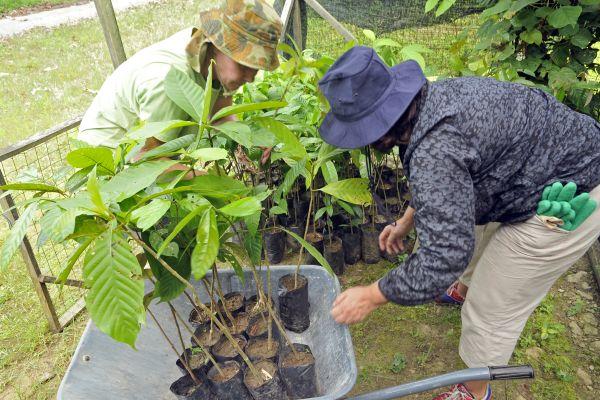
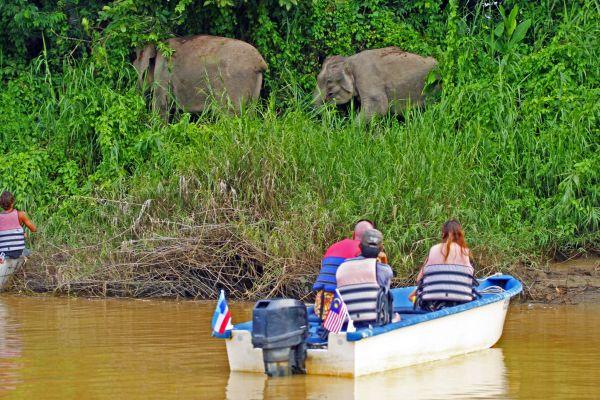
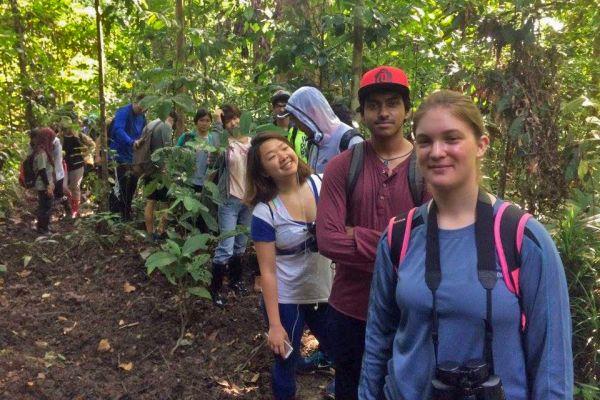
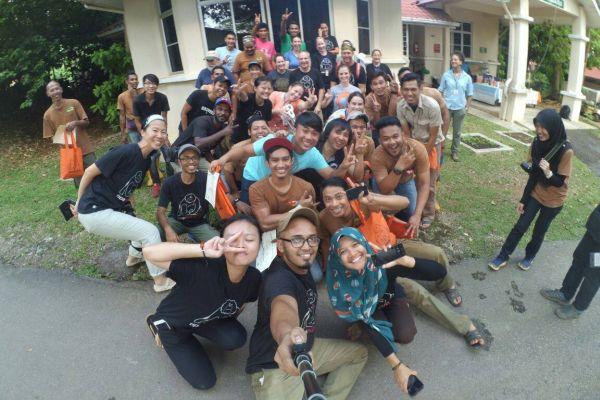
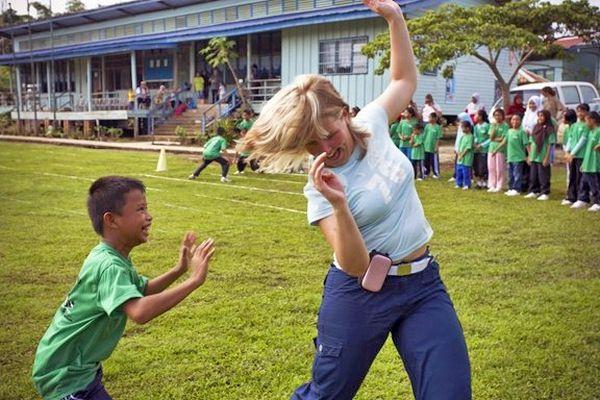
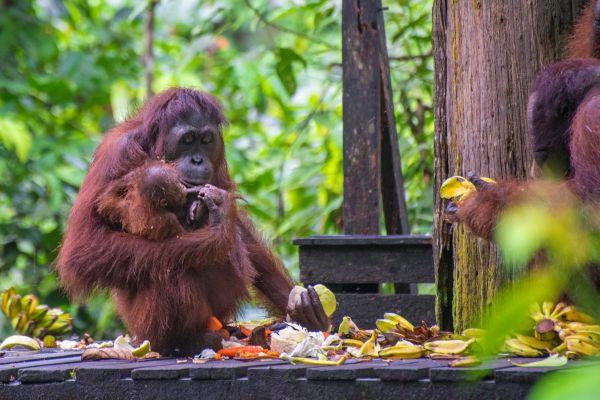
Itinerary
Please note, itineraries are subject to change and what follows is simply a rough guideline.
Start Dates & Prices
To secure a place on this project, a deposit of $245 is required at the time of booking, with the remaining balance due any time up to 60 days prior to your start date.
Select a duration below to see the available start dates. All dates shown are currently available for you to join this project!
Accommodation
Accommodation
Most of your time on the project will be spent in Sukau, where you will stay in a small local village B&B situated close to the riverbank, with a common area overlooking the river itself. Rooms here will be on a same-sex, twin-share basis and each room has an en-suite bathroom with warm showers and western toilets. If, however, you are joining as a couple, you will be accommodated together. While the accommodation is basic, it is comfortable, coming complete with bed linen and bath towels. What’s more, you’ll be situated right in the middle of Sukau village, offering you ample opportunity to get to know your hosts and learn all about their way of life!
Your first and final night’s accommodation will be close to Sandakan to make for easy airport transfers. Rooms will be provided on either a twin-share or dormitory-style basis, again with warm showers and western toilets. It is possible to book a single room for the duration of your time on the project, with the exception of your first night in Sandakan. This can be done for an additional $282, but is subject to availability.
Meals & Beverages
Three meals are provided each day and are included in the price of the project. Whilst in Sukau, breakfast will be served at your accommodation, however, lunch and dinner will be prepared by local villagers in their homes, presenting a great opportunity to hear about their daily lives, and see how the community has been living for centuries. Most meals will consist of traditional Malaysian food, however, those with dietary requirements can be catered for but we do kindly request that you let us know in advance so that appropriate food items can be purchased. Tea, coffee and water are provided at the accommodation in Sukau, but all other beverages are not included.
Project Details
When Is The Best Time To Volunteer?
There is no specific 'best' time to join this project, as wildlife is visible all year round.
The weather is also quite constant throughout, with temperatures averaging 29-33°C (84-91°F) in the daytime and 24°C (75°F) at night. Whilst it can rain all year round due to it being a rainforest climate, the rainy season is typically between November and February, making March to October a popular time to volunteer.
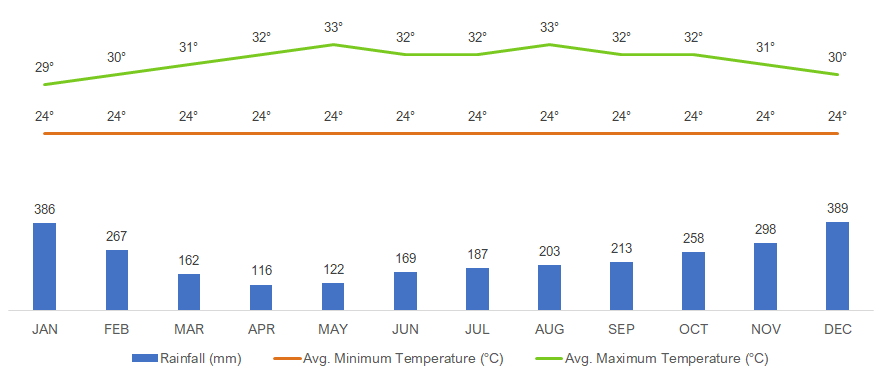
Getting There
You will need to fly into Sandakan Airport (SDK) on your project start date, arriving between 8am - 4pm. Upon arrival, you will be met by a project representative in the arrivals hall who will transfer you to your first night’s accommodation. This transfer takes approximately 40 minutes.
If you arrive a day early and stay in a hotel close to Sandakan Airport, we may be able to arrange your transfer to your first night’s accommodation from there.
Visa Requirements
Most nationalities do not need to obtain a visa in advance of travelling to Malaysia, as a 90-day tourist visa is granted on arrival. We do, however, recommend checking with your local embassy regarding visa requirements as visas are the volunteer's own responsibility.
Fitness & Skills
This project involves physical work in the way of reforestation activities, often in humid conditions, therefore, a good level of fitness is required. No specific skills are required to join this project: just a love of animals, a strong work ethic, and an ability to work in a team.
Vaccinations
There are no specific vaccination or medical requirements needed to join this project and as such, the vaccinations you require will depend on your medical history. We, therefore, recommend that you consult your GP/Doctor regarding your own immunisation needs.
No Contact Policy
We are often asked whether or not volunteers will have the chance to touch or play with the orangutans whilst on this project. Our answer to this question is, and will always be no, and this is for good reason.
Orangutans are highly susceptible to human diseases and something as minor as the common cold can prove fatal to these great apes. Also, an environment of constant change, with new volunteers going to the project every two or four weeks and being in contact with the orangutans would be very detrimental to their well-being. With no consistency in their lives, behavioural problems arise. They also have a tendency to begin to trust humans which is damaging should they be released back into the wild, as they will become easy targets for poachers. Finally, an orangutan is around 7 times stronger than an adult male human, so a no-contact policy is just as crucial for your well-being as orangutan welfare.
That is not to say that as a volunteer you will have no interaction with orangutans, it simply means that you will have no direct contact with them. You will still observe them when visiting the Sepilok Orangutan Rehabilitation Centre and from the boats when on the river if you are lucky enough to see them! For more information please view our article on hands-on contact with orangutans here.
Gallery
What's Included
- Accommodation
- Three meals per day
- All transfers
- Entrance fees to the Sepilok Orangutan Rehabilitation Centre and the Rainforest Discovery Centre
- Full orientation and support from the project managers
- A conservation donation
What's Not Included
- Flights
- Travel insurance
- Visas
